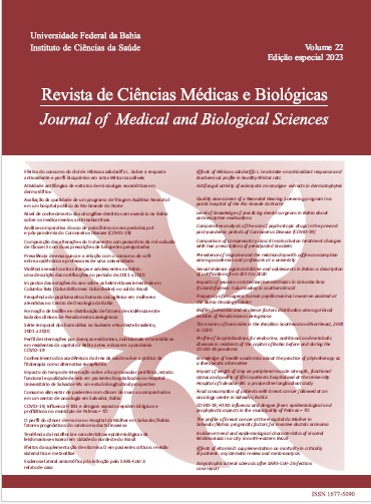Intestinal helminthic parasites in Columba livia (Columbiformes: Columbidae) in southern Brazil: do seasons influence helminth infections in the Neotropical region?
DOI:
https://doi.org/10.9771/cmbio.v22i4.54317Keywords:
Pigeons, Nematoda, Digenea, Cestoda, SeasonalAbstract
Objective: The aim of this study was to analyze intestinal helminthic infections in pigeons Columba livia Gmelin, 1789 (Columbiformes: Columbidae) which were collected in three different seasons in southern Brazil. Material and methods: Ninety birds (hosts) were captured in the urban area in Pelotas, Rio Grande do Sul (RS) state, Brazil, in autumn, winter and spring in 2018 and 2019. Results: Helminths species and their prevalences were: Ascaridia columbae (33.33%), Baruscapillaria obsignata (23.33%) (Nematoda), Brachylaima mazzantii (3.33%) (Digenea), Skrjabinia sp. (11.11%) and Killigrewia sp. (3.33%) (Cestoda). Prevalence and mean intensity of infection in the three collection periods did not show any significant difference, except A. columbae, which was more prevalent in autumn than in spring. Conclusion: Results showed that abiotic and environmental conditions found in the region were suitable for the development of intestinal helminths associated with C. livia in the sampling periods in southern Brazil.
Downloads
Downloads
Published
How to Cite
Issue
Section
License
Copyright (c) 2024 Journal of Medical and Biological Sciences

This work is licensed under a Creative Commons Attribution 4.0 International License.
The Journal of Medical and Biological Sciences reserves all copyrights of published works, including translations, allowing, however, their subsequent reproduction as transcription, with proper citation of source, through the Creative Commons license. The periodical has free and free access.


